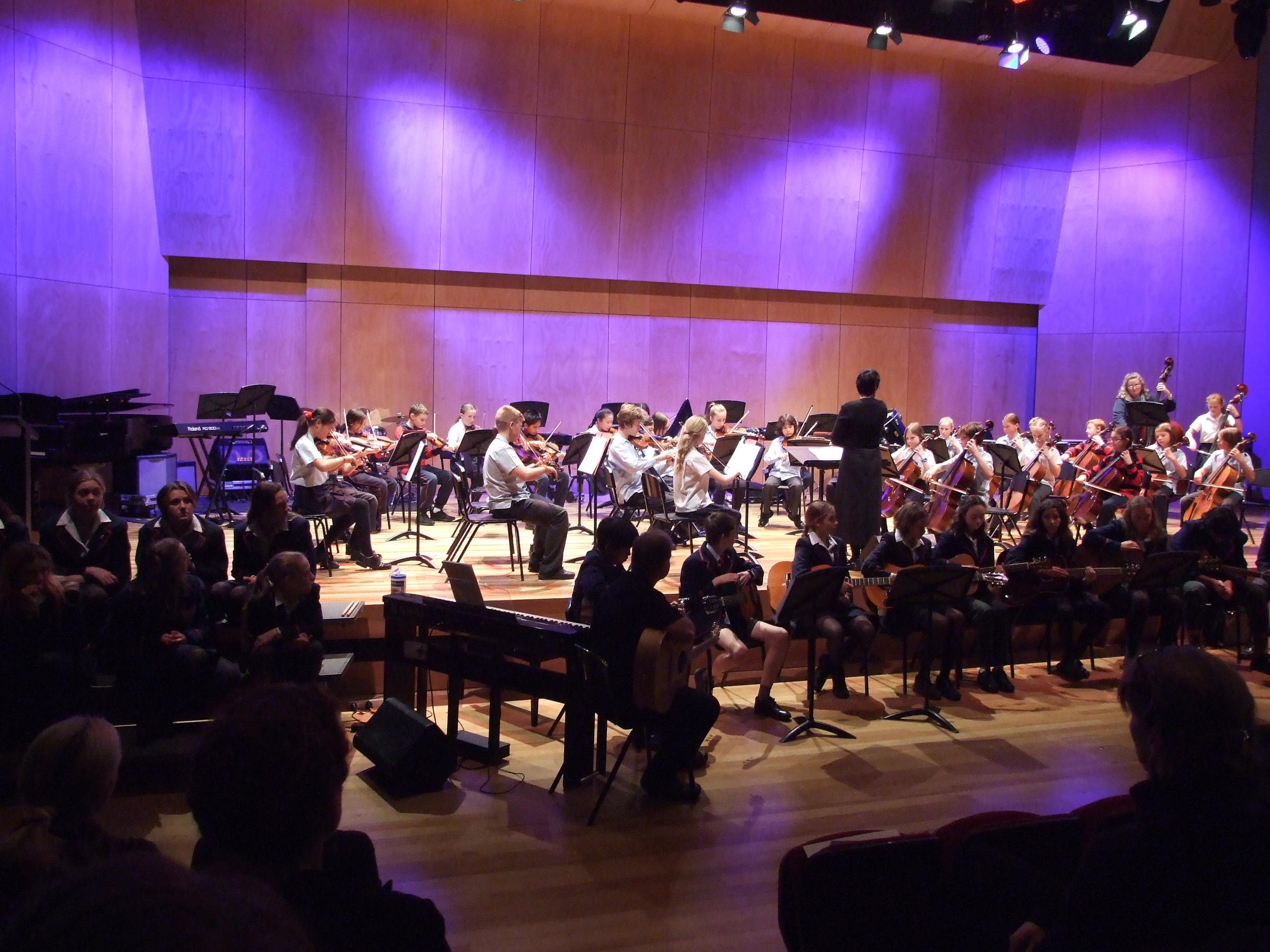TCE Music Foundation Practical Study (UCP)

TCE Music Foundation Practical Study
| 🎓Course Type | Pre-tertiary, University Connections Program course |
|---|---|
| TASC Code | FCP113 |
| TCE Points | 15 |
| ⏱Hours | 150 |
| ✔️Standard | NA |
| 📚Prerequisites | NA |
📎Desirable prior experiences | Successful completion of Year 10 Music or equivalent |
| 📝Assessment | Internal and external ongoing criteria Performance or composition specialisation Public performance requirements Externally assessed performance recital |
What will I learn?
This subject is the first of two that provide an intensive course of study in music performance or composition.
This course demands much of students in terms of performance and technical skill, the ability to read music notation, and the ability to work independently. If any of these are in doubt, then students should consult a member of the Music staff before choosing this subject.
On successful completion of this course, students will:
- Demonstrate performance or compositional skills, evidenced through recital or presentation of original works
- Deepen your musical understanding through appropriate repertoire or musical composition to performance-standard, as well as engaging in classroom conversation, research, and independent learning activities to develop musical ideas for interpretation through performance or presentation
- Demonstrate an understanding of the nature of instrumental performance or presentation of musical compositions, developing reliable strategies to improve performance; in particular, effective practising / composition techniques, designed to make best use of available time, communicating with and coordinating rehearsal times with associated musicians
- Demonstrate effective communication, information, literacy, and analytical skills by engaging in specific activities to enhance the development of critical understanding of performance / composition issues (weekly instrumental / composition class, performance practice, assessment presentations, attendance at and critique of professional performances)
The University advises students wishing to specialise in performance, to first complete Music Level 3 in Year 11. Students wishing to specialise in composition must have first specialised in composition in Music Level 3. This would make Music Foundation Practical Study a Year 12 subject for most, however, performance students with well-developed instrumental and vocal skills may still enrol in Music Foundation Practical Study in Year 11.
Sometimes students can underestimate the technical skills required to perform music of the required standard for this course. The University has prepared a series of repertoire lists and basic technical ‘hurdle’ tasks for a range of instruments, including the voice. If students are unsure if their level of technical skill will suffice, they are advised to check the lists. The lists in use for 2022 may be found here: technical skills list
This course is structured in the same way as a pre-tertiary TASC subject to ensure students receive the breadth of teaching and learning support over the whole school year. Students are required to invest significant time in skill development as well as concert attendance and critical listening activities. Students are required to demonstrate independence in their learning to develop a performance program or presentation of compositions, and maintain a portfolio containing all required tasks.
Students will specialise in either performance OR composition. Mid-year assessments (part formative, part summative) are conducted in Term 2 in each of the schools/colleges. The culminating (summative) performance recital or composition presentation occurs in late October / early November. These are panel assessments involving classroom teachers and Conservatorium staff. Students are also required to complete a written portfolio of work throughout the year.
Performance students prepare a 17-minute public recital and submit a portfolio of related written work. Written assignments include research and communication about professionalism, technique development, musicality and repertoire analysis. Students complete reviews of live performances and reflect on their own performance practice. Students are also required to perform regularly throughout the year and for a variety of audiences. The presentation component is a short interview with the assessment panel about awareness of technique, program design, performance preparation and artistic growth.
| Performance specialisation | ||
| Written Portfolio | 5 written tasks (1000 words each) | 20% |
| Mid-year Performance / Presentation | 12 minutes / 3 minutes | 15% |
| Final Performance / Presentation | 17 minutes / 3 minutes | 65% |
Composition students are required to write approximately four original works totalling a minimum of 12 minutes playing time, and covering a range of musical styles and ensembles. They also need to submit a folio of written work that relates directly to the art and technique of composition. The presentation component is a short interview with the assessment panel discussing the student’s `compositional intent, design and techniques, and artistic growth.
| Composition specialisation | ||
| Written Portfolio | 5 written tasks (1000 words each) | 20% |
| Mid-year Performance / Presentation | 5 minutes / 3 minutes | 15% |
| Final Performance / Presentation | 12 minutes / 3 minutes | 65% |
Why should I consider this course?
You wish to hone your craft through enrichment experiences provided by artists and teachers, develop reliable strategies to improve performance practice, improve your communication skills as a performer or composer, and make peer / professional connections locally and beyond. You enjoy artistic collaboration with other musicians using music industry standard equipment and facilities, and enjoy performing on stage to live audiences in a range of contexts.
What skills does this course provide?
Across genres and styles of commercial pop, independent, jazz and classical music, this course offers you the opportunity to develop technical, musical, performance and professional skills in music performance or composition. In addition, there is an opportunity to develop effective communication, information, literacy, and analytical skills. Performance preparation strategies are explored to maximise efficient growth and achievement as a musician and artist.
What Pathway Options does this course provide?
This course is designed to build skills for successful entry into the Bachelor of Music degree at the Tasmanian Conservatorium of Music and also support entry to the Music FCP120 and Music Level 3 courses in Year 12.
